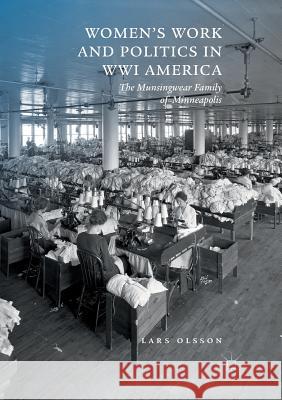Women's Work and Politics in Wwi America: The Munsingwear Family of Minneapolis » książka
topmenu
Women's Work and Politics in Wwi America: The Munsingwear Family of Minneapolis
ISBN-13: 9783030079642 / Angielski / Miękka / 2019 / 301 str.
Women's Work and Politics in Wwi America: The Munsingwear Family of Minneapolis
ISBN-13: 9783030079642 / Angielski / Miękka / 2019 / 301 str.
cena 218,20 zł
(netto: 207,81 VAT: 5%)
Najniższa cena z 30 dni: 218,20 zł
(netto: 207,81 VAT: 5%)
Najniższa cena z 30 dni: 218,20 zł
Termin realizacji zamówienia:
ok. 16-18 dni roboczych.
ok. 16-18 dni roboczych.
Darmowa dostawa!
Kategorie BISAC:
Wydawca:
Palgrave MacMillan
Język:
Angielski
ISBN-13:
9783030079642
Rok wydania:
2019
Wydanie:
Softcover Repri
Ilość stron:
301
Waga:
0.37 kg
Wymiary:
21.01 x 14.81 x 1.68
Oprawa:
Miękka
Wolumenów:
01
Dodatkowe informacje:
Wydanie ilustrowane











